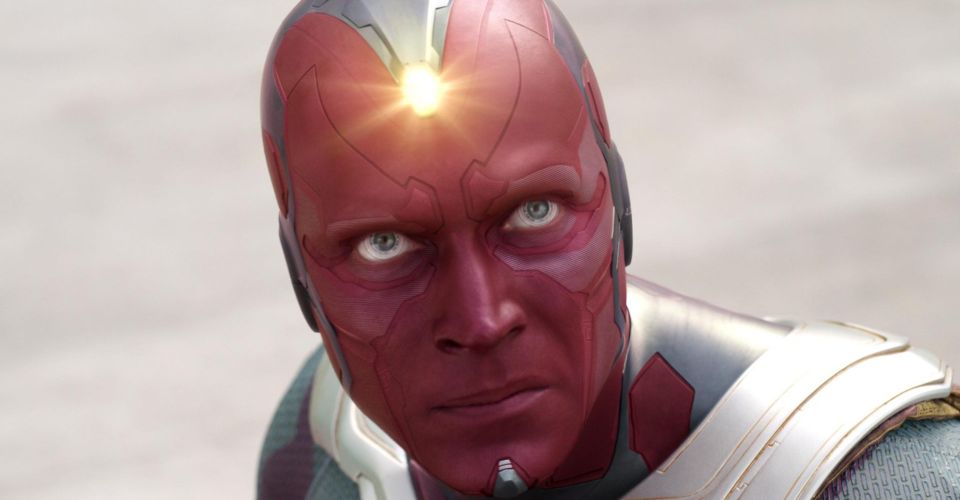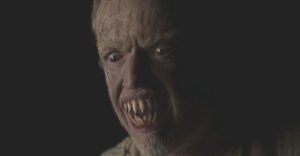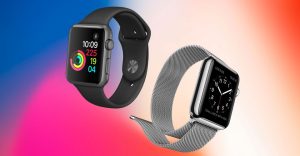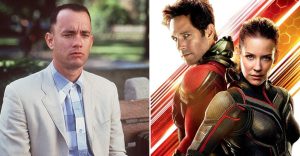Avengers: Why Vision Is Less Powerful After Age of Ultron

Why does Vision seem weaker after his MCU debut in Avengers: Age of Ultron? Joss Whedon’s second Marvel team-up movie introduced a host of new faces from the comic books, including Vision, Scarlet Witch and, ever so briefly, Quicksilver. Out of this trio, Elizabeth Olsen’s Wanda Maximoff and Paul Bettany’s Vision would go on to become main players in the franchise. Vision’s powerful vibranium body was created by Tony Stark’s rogue Ultron android, who wished to transfer into a perfect synthetic host powered by the Mind Stone. The Avengers reclaim this project and instead upload Tony’s personal A.I. assistant J.A.R.V.I.S. into the shell, creating a superhero who would not only fight alongside them, but rapidly develop a personality all of its own.
Vision is immensely powerful in Avengers: Age of Ultron, and this should come as no surprise, given that the android’s Mind Stone isn’t exactly an off-the-shelf Pentium processor. In his debut outing, Vision proves he can wield Mjolnir, fire energy beams, alter his density at will and fly. Vision effortlessly destroys Ultron’s robotic minions, and puts up a better fight against the metallic menace himself than the other Avengers. At Age of Ultron‘s climax, it’s Vision who ultimately destroys the titular villain with a blast of Mind Stone power. Vision is presented as arguably the strongest Avenger at this point in the MCU timeline.
However, Vision comes across considerably weaker during subsequent appearances in Captain America: Civil War and Avengers: Infinity War. During the airport clash against Team Rogers, Vision is useful, but no more so than any other superhero fighting on Tony Stark’s side. Crucially, it’s Vision who accidentally shoots down War Machine with an errant laser beam – a distinctly human error for a usually precise android. Moving on to Avengers: Infinity War, Vision and Wanda are attacked by Corvus Glaive and Proxima Midnight in Scotland, and the android does not cover himself in glory whatsoever here. After being taken by surprise and stabbed, Vision is largely useless in the battle and only saved thanks to the arrival of Captain America and his friends. In Wakanda, Vision did manage to kill Glaive but was swiftly relieved of his Mind Stone and destroyed by Thanos. Throughout Thanos’ invasion of Earth, the Mad Titan’s four main henchmen become increasingly anonymous, and this makes Vision’s Avengers: Infinity War defeat look even worse.

Clearly, Vision is no longer the unstoppable machine that MCU fans first met in Avengers: Age of Ultron. This version of the character could’ve put an end to the Civil War between Tony Stark and Steve Rogers instantly, and surely would’ve sensed Glaive and Midnight’s surprise attack in Avengers: Infinity War. Even with a nasty injury, the Vision of old should’ve been able to see off Thanos’ goons and then put up more of a fight against Josh Brolin’s villain in Wakanda, especially considering the likes of Captain America and Thor were able to get some good shots in.
The MCU does try to account for Vision appearing so much weaker in Captain America: Civil War and Avengers: Infinity War, although some reasons are more explicit than others. During the battle against Steve Rogers in Leipzig, it’s safe to assume that Vision was holding back considerably due to the “civil” context of the fight. Not only does the opposition team include Vision’s own love interest, he’s also going up against former allies such as Rogers and Sam Wilson. Vision is hardly going to go straight for the kill. Even with the folks he doesn’t know (Ant-Man, Bucky), Vision undoubtedly recognizes these aren’t bad people.
The reasoning behind Vision’s lesser power level in Avengers: Infinity War is less convincing. The Russo brothers perhaps hoped that showing Vision stabbed by surprise would explain his relative weakness for the remainder of the film. Vision isn’t the central focus of Avengers: Infinity War and Thanos needs to somehow get the Mind Stone out of his forehead, so it wouldn’t do to have Vision easily defeating Thanos’ emissaries and fighting competitive battles that increase the film’s already considerable runtime. The more the MCU’s roster swells, the more overpowered characters become a problem. In Avengers: Endgame, for example, Captain Marvel is written out right until the very end, simply because she’s too powerful to stick around for long. Vision posed the same problem; the power he showed during Avengers: Age of Ultron would’ve made the events of Civil War and Infinity War far less dramatic.
- Black Widow (2021)Release date: Jul 09, 2021
- Eternals (2021)Release date: Nov 05, 2021
- Shang-Chi and the Legend of the Ten Rings (2021)Release date: Sep 03, 2021
- Thor: Love and Thunder (2022)Release date: Jul 08, 2022
- Doctor Strange in the Multiverse of Madness (2022)Release date: May 06, 2022
- Black Panther: Wakanda Forever/Black Panther 2 (2022)Release date: Nov 11, 2022
- The Marvels/Captain Marvel 2 (2023)Release date: Feb 17, 2023
About The Author


















